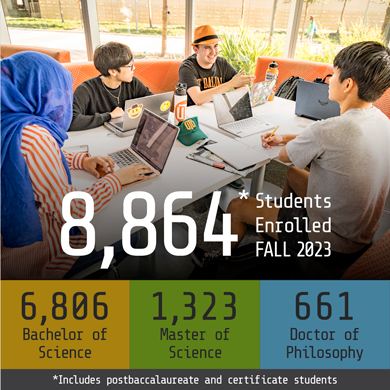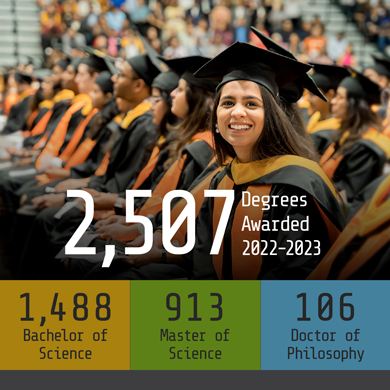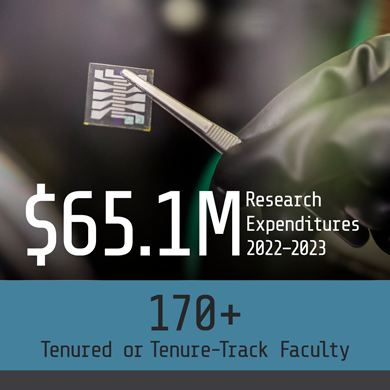
Growth Brings New Name for Department
March 28, 2017
A founding department in the Erik Jonsson School of Engineering and Computer Science has changed its name to better reflect the program’s extensive expertise.
The Department of Electrical and Computer Engineering this year celebrates its 30th anniversary along with the Jonsson School.
“Simply put, our former name of the Department of Electrical Engineering could not encapsulate everything we are and aim to become,” said Dr. Lawrence Overzet, head of the department. “The new name highlights our use of computing and new technologies in solving engineering problems. From automation to device simulation, from communications and signal processing to power and energy; research in our department relies extensively on understanding computer-based approaches to solving complex engineering problems.”
In the last two years, five tenure-track professors have been added to bolster research and education activities, including Dr. Benjamin Carrion-Schaefer, Dr. Joseph S. Friedman, Dr. Qing Gu, Dr. Chin-Tuan Tan and Dr. J.V. Rajendran.
Overzet said the trend in hiring is expected to continue as the Department plans to add up to five more tenure-track faculty members in the coming year; two of those are expected to be in the broad area of computer engineering. Department faculty numbers will then be close to 60.
The Jonsson School has added four departments that complement the research conducted in the Electrical and Computer Engineering Department: materials science and engineering, mechanical engineering, bioengineering and systems engineering. In 2008, the University also became home to the Texas Analog Center of Excellence, or TxACE, the largest university-based analog center in the world, whose University members include faculty from the department.
The Department administers two undergraduate degree programs: electrical engineering and computer engineering. The computer engineering degree program is a collaboration with the Jonsson School’s Department of Computer Science.
At the graduate level, students can pursue a master’s degree and a PhD in electrical engineering, computer engineering and telecommunications engineering. Examples of research areas for students include digital and analog circuits; communications; control systems; electronic and photonic devices and systems; power electronics and energy systems; radio frequency and microwave engineering; signal processing; micro and nano device fabrication, among others.

“Simply put, our former name of the Department of Electrical Engineering could not encapsulate everything we are and aim to become,” said Dr. Lawrence Overzet, head of the department.”







